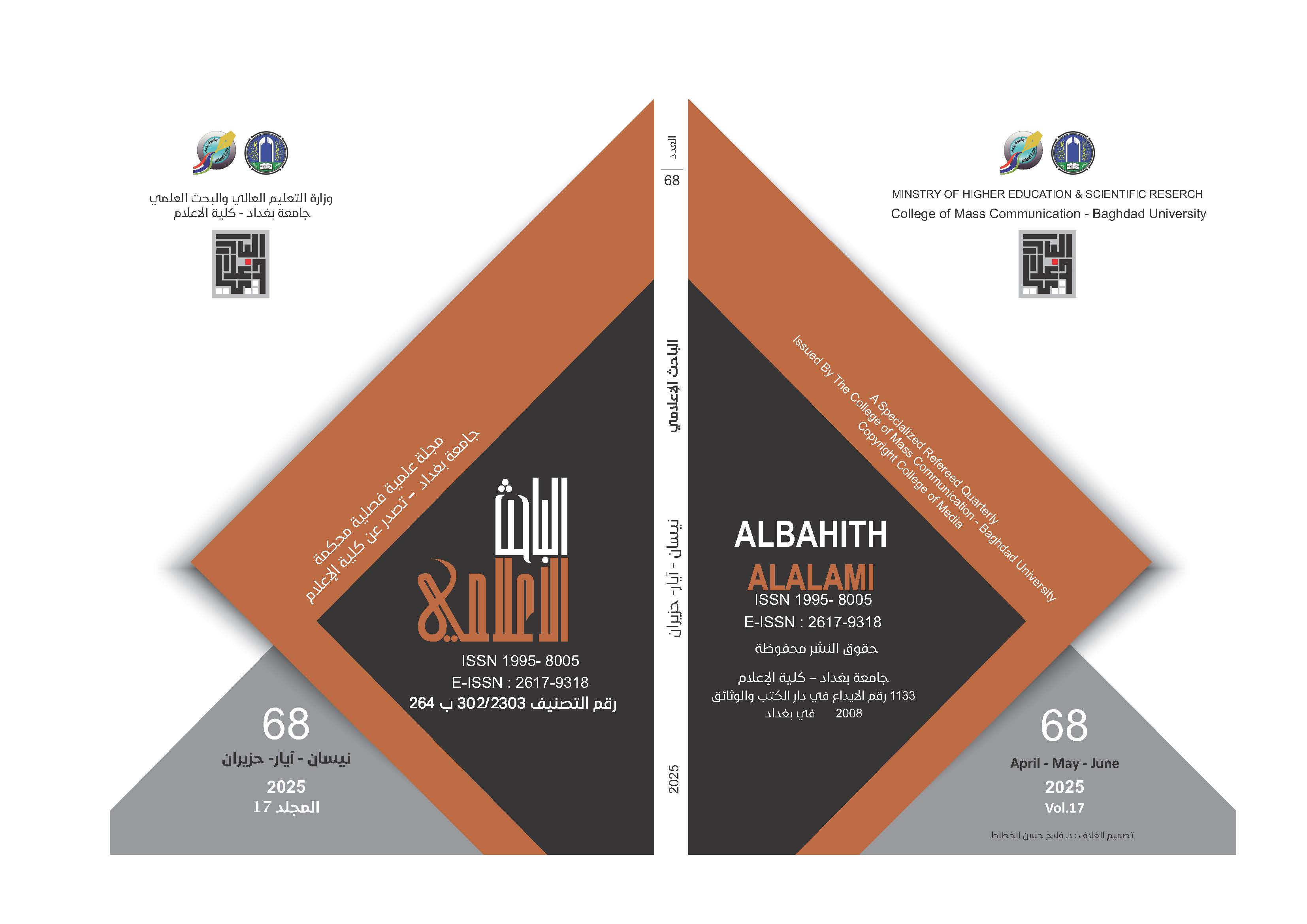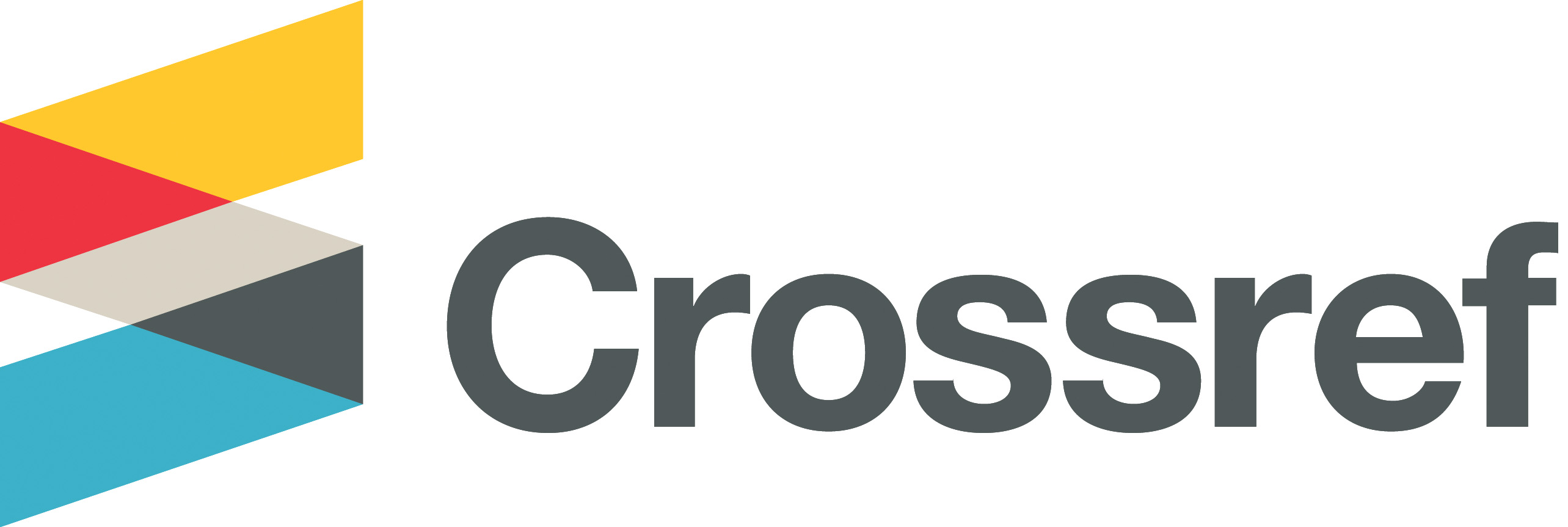Content of Foreign Propaganda Directed at Iraq on Facebook
A Case Study of the "Israel in Iraqi Dialect" Page
DOI:
https://doi.org/10.33282/abaa.v17i68.1058Keywords:
Propaganda, (Israeli) Propaganda, FacebookAbstract
Objectives: This research aimed to study and analyze the propaganda content of the Facebook page "Israel in Iraqi Dialect" to understand the propaganda techniques used, the messages directed at the audience, and efforts to promote normalization between Iraq and Israel through the analysis of the media, political, and social discourse presented on the page.
Methodology: The researcher used content analysis as the main tool for data collection and interpretation, analyzing the page's posts using a content analysis form designed for this purpose, within the framework of thematic units. A sample consisting of 20% of the page's content was selected, relying on a comprehensive census approach to analyze all available content, focusing specifically on the official verified Facebook page managed by the Israeli Ministry of Foreign Affairs.
Results: The study found that the page primarily focused on political propaganda content, which constituted 34.50%, aimed at promoting normalization with Iraq. It also showed significant interest in social content, which made up 23.59%, by engaging in direct dialogue with users to promote "social normalization." The most used approach was direct dialogue and speech to enhance audience interaction, indicating the use of sophisticated and targeted propaganda strategies.
Conclusion: The research demonstrated that the propaganda content of the "Israel in Iraqi Dialect" page primarily aims to renew dialogue and interaction with the audience through clear and transparent strategies, effectively utilizing social media to serve propaganda goals, particularly in the context of normalization and promoting Israeli interests in the region.
Downloads
References
A group of Israeli authors. (2005). The Israeli Role in the U.S. War on Iraq (A. A. Hudbah, Trans.). Damascus: The Center for Palestinian Studies.
Al-Dulaimi, A. R. M. (2010). Propaganda and Terrorism. Amman: Dar Jarir.
Al-Ghazi, M. M. (2022). Persuasive Appeals in the Content of Israeli Propaganda Towards the Iraqi Audience on Social Media Networks [Unpublished Master's Thesis, University of Baghdad].
Al-Masdar, H. I. (2020). Advertising on Social Media. Gaza: Center for Regional Studies.
Al-Sammer, A. A. (2016). International Propaganda: The American Propaganda Activity in Iraq 1945-1958. Amman: Dar Amjad for Publishing And Distribution.
Arabs, T. (2021). Israel in the Iraqi Dialect’: Popular Normalization Precedes Political Normalization. Rawabet Center for Research and Strategic Studies. https://rawabetcenter.com/archives/123091
Ayrton, S., & Posetti, J. (2020). Journalism, Fake News, and Disinformation (M. Al-Abed, Trans.). Amman: United Nations Educational, Scientific and Cultural Organization (UNESCO).
Baghdad Today.News. (2022, 14 July). Israel delivers Biden a special message to five countries including Iraq. https://baghdadtoday.news/195267-.html
Cha, H., Yeo, S., & Kim, B. (2015). Exploring Websites of Foreign Embassies as a Dialogue Space for Diplomatic Offices and Foreign Publics: Based on Dialogic Theory of Public Relations. International Journal of Multimedia and Ubiquitous Engineering, 10(2), 297-308. https://doi.org/10.14257/ijmue.2015.10.2.27
Halak, B. (2020). Media and International Communication. Damascus: Syrian Virtual University.
Hussein, S. M. (2006). Media Research: Studies in Scientific Research Methods. Cairo: Dar Alam Al-Kutub for Publishing, Printing and Distribution.
Jnaah, A. A. A.-H. (2021). Trends of Israeli Propaganda in Electronic Messages Directed to Iraq via Facebook Pages. [Unpublished Master's Thesis, University of Tikrit].
Kyoosh, K. K., & Muhammad, A. G. (2021). The communicative content of "Israeli" popular diplomacy from the perspective of international public relations. ALBAHITH ALALAMI, 13(52), 87-110. https://doi.org/10.33282/abaa.v13i52.769
Manor, I. (2017). Digital Diplomacy Working Paper: The Digitalization of Diplomacy- Toward Clarification of a Fractured Terminology. https://doi.org/10.13140/RG.2.2.31199.36004
Mearsheimer, J. J., & Walt, S. M. (2007). The Israel Lobby and U.S. Foreign Policy. New York: Farrar, Straus and Giroux.
NAMUQ, B. K., & Al-BAYATI, M. A. A.-H. (2021). Employing digital diplomacy in foreign policy: Israel as a model . International Affairs and Global Strategy, 90. https://doi.org/10.7176/iags/90-05
Qarnani, Y., & Bakkar, A. (2018). New Media Applications: Concepts, Characteristics, Functions, Opportunities, and Challenges. Amman: Dar Al-Ayyam for Publishing And Distribution.
Saeed, S. (2020). Propaganda Techniques in Israeli Discourse Directed at the Palestinian People through Interactive Media. Qatar: Al Jazeera Media Institute. https://bit.ly/3YZ9PCS
Taylor, P. (2000). Bombing the minds (S. Khashaba, Trans.). Kuwait: National Council for Culture, Arts & Letters.
Woolley, S. C., & Howard, P. N. (2016). Political Communication, Computational Propaganda, and Autonomous Agents. International Journal of Communication, 10, 4882-4890. https://ijoc.org/index.php/ijoc/article/view/6298
Downloads
Key Dates
Received
Revised
Accepted
Published
Issue
Section
License
Copyright (c) 2025 Author

This work is licensed under a Creative Commons Attribution 4.0 International License.
Authors retain copyright and grant the journal right of first publication with the work simultaneously licensed under a Creative Commons Attribution License (CC BY 4.0) that allows sharing the work with recognition of authorship and initial publication in ABBA journal.


















